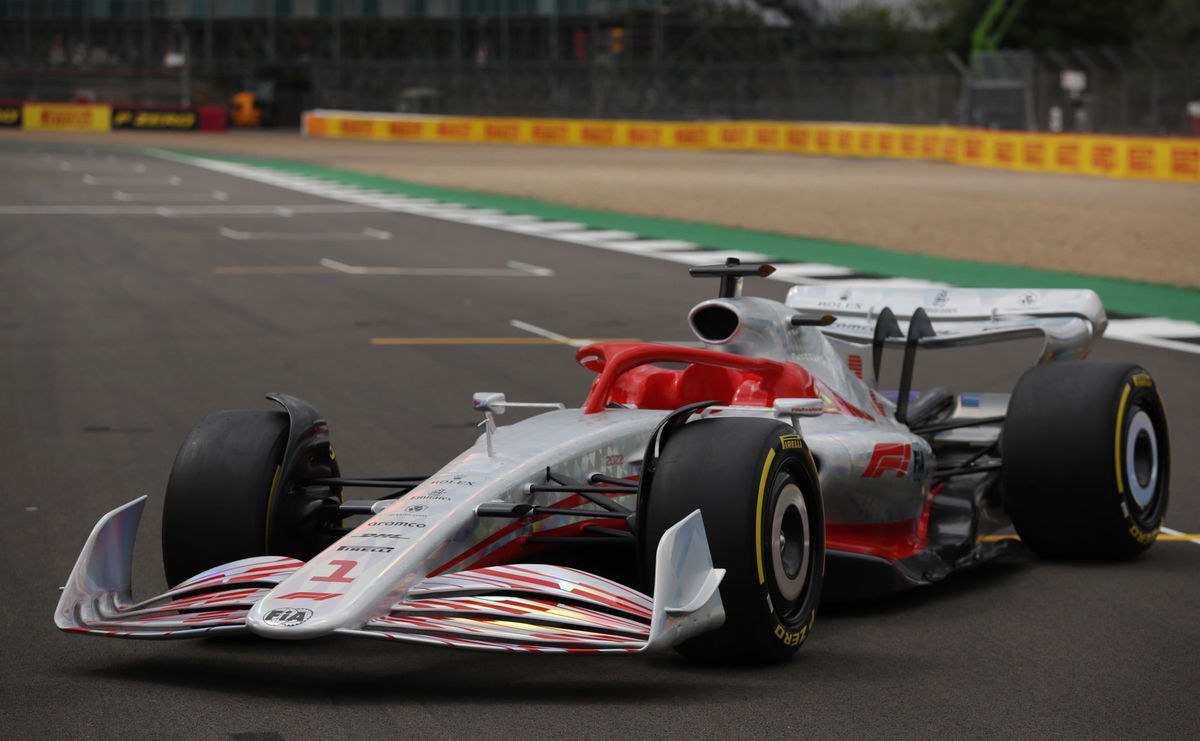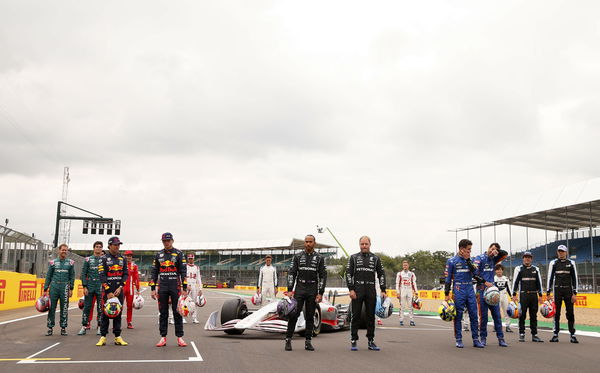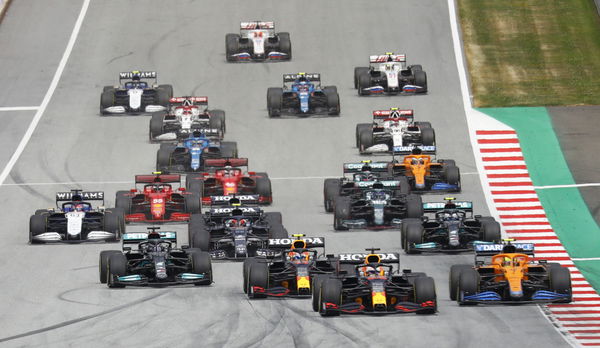
Reuters
Formula One F1 – British Grand Prix – Silverstone Circuit, Silverstone, Britain – July 15, 2021 The new 2022 F1 car is unveiled during a promotional photoshoot REUTERS/Andrew Couldridge

Reuters
Formula One F1 – British Grand Prix – Silverstone Circuit, Silverstone, Britain – July 15, 2021 The new 2022 F1 car is unveiled during a promotional photoshoot REUTERS/Andrew Couldridge
The 2014 season was indeed the dawn of what has been an amazing and rather successful era for F1. Of course, we did surrender some special aspects, including re-fueling and the fiery roar of the V8 engines, which initially faced a significant amount of backlashes.
Watch What’s Trending Now!
But, over time, fans have moved on. And we’ve now arrived at the point where F1 is seeking ways to maximize the potential of hybrid engines. In addition to that, there is the aspect of fuel, which could be manufactured out of bio-waste.

Reuters
Formula One F1 – British Grand Prix – Silverstone Circuit, Silverstone, Britain – (L – R) Alpine’s Esteban Ocon and Fernando Alonso, McLaren’s Daniel Ricciardo and Lando Norris, Mercedes’ Lewis Hamilton and Valtteri Bottas, Red Bull’s Max Verstappen and Sergio Perez and Aston Martin’s Lance Stroll and Sebastian Vettel pose during a promotional photoshoot for the unveiling of the new 2022 F1 car REUTERS/Andrew Couldridge
Hence, with F1 always hunting for ways to bring the sport’s carbon footprint to nil, one might ask, why can’t F1 opt to go with electricity rather than fuel? Well, before rushing to such questions, let’s ask ourselves, are F1 cars capable of running on electricity?
ADVERTISEMENT
Jean Todt, president of FIA, doesn’t think so. The Frenchman made it clear enough that it is pretty much impossible to run an F1 car on electricity with the help of the current technology.
ADVERTISEMENT
Why can’t F1 cars run on electricity?
The 75-year-old Frenchman reckoned that with the racing distance Formula 1 cars are seeking to cover, running on electricity would mean that F1 will be obligated to bring back recharging. And to top it all, there is the very possible drop in performance.
“It’s simply not possible,” Todt said according to BBC. “In Formula One, a race distance is about 200 miles (305km). Without recharging, with the performance of the cars, electricity will not allow that.
ADVERTISEMENT
“Maybe in 20 years, 30 years, I don’t know. But at the moment it would be simply impossible,” he concluded.
Top Stories
‘Helped My Humanity’: Lewis Hamilton Lays Bare Truth of Travel Bug Amidst Heritage Visit in Benin

Who Is Oscar Piastri’s Father, Chris Piastri? Co-Founder of Multibillion Dollar Automotive Company

Language Barrier Didn’t Hold Back Lando Norris to “Hook Up” With OnlyFans Model: “We Talked by Mime”

Carlos Sainz & Ex Girlfriend Isa Hernaez Issue Contrasting Statements to Stir the Pot After Unexpected Breakup

Who is Ayumu Iwasa? The Red Bull Junior Team Driver from Japan


Reuters
Formula One F1 – Austrian Grand Prix – Red Bull Ring, Spielberg, Styria, Austria – July 4, 2021 Red Bull’s Max Verstappen leads at the start of the race ahead of McLaren’s Lando Norris REUTERS/Leonhard Foeger
But, is it necessary for F1 to switch onto the ‘electric’ path? Definitely not. There is already a Formula series in place that produces racing using electric cars – Formula-E. Hence, it would be absolutely pointless for F1 to go all-electric, which could well destroy the heritage of what is called the pinnacle of motorsport.
ADVERTISEMENT
And, of course, there’s also the completely muffled sound of the cars. There is no denying that a lot of fans are still not over the end of the V10 and V8 era. Hence, imagine the level of hatred the Formula 1 management would fall under if they scrape off the fuel-based engines and instead bring in electric engines.
Well, Todt has kept it crisp and clean by tearing apart any kind of speculations over Formula 1 switching to all-electric. However, the environmental impact is, of course, a valid point that needs serious consideration and all measures must be taken to reduce the negative impact as much as possible.
Watch Story: From Prince to the Queen: When F1 Stars Interacted With the Royal Family
ADVERTISEMENT
ADVERTISEMENT
ADVERTISEMENT
ADVERTISEMENT

